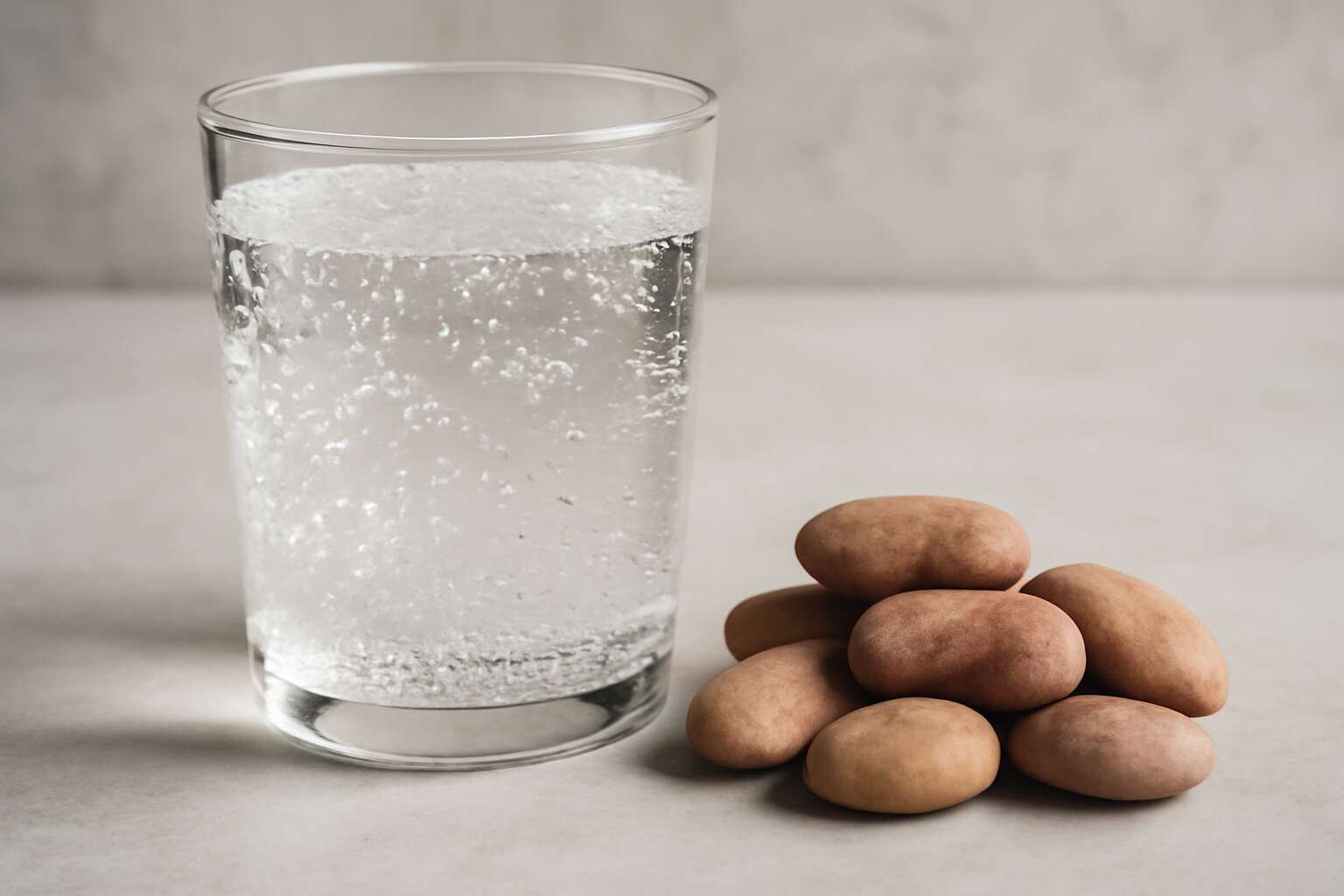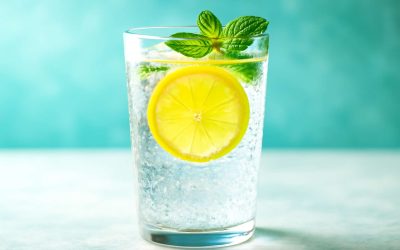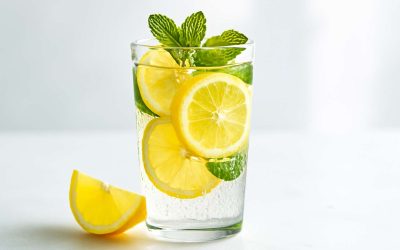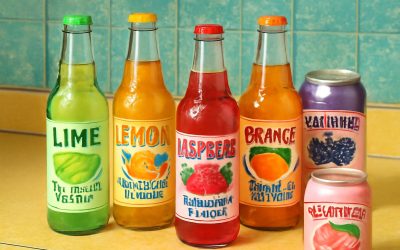Understanding Kidney Stones
What Are Kidney Stones? – Definition and common types of kidney stones
Kidney stones remain a silent threat lurking within the human body, with up to 12% of the population experiencing their painful surprise at some point. These crystalline formations develop in the kidneys, often forming when certain substances become overly concentrated in the urine. Understanding what causes these stones is essential, especially as lifestyle choices such as drinking sparkling water kidney stones can influence their formation.
So, what exactly are kidney stones? They are hard deposits made of minerals and salts that crystallise in the kidneys. The common types include calcium oxalate, uric acid, struvite, and cystine stones. Among these, calcium oxalate stones are the most prevalent, often linked to dietary factors. Sometimes, the consumption of sparkling water kidney stones has been speculated to contribute to their development, though scientific evidence remains nuanced and complex.
Knowing the different types of kidney stones can help in recognising potential risk factors. For example, calcium oxalate stones form when calcium combines with oxalate in the urine, while uric acid stones develop due to excess acid. Occasionally, a person might develop multiple types simultaneously, complicating diagnosis and treatment. The mystery behind their formation continues to intrigue medical researchers, especially when lifestyle elements like diet and hydration habits, including the intake of sparkling water, are involved.
Causes and Risk Factors – Factors contributing to kidney stone formation
Kidney stone formation is a complex, fascinating dance of chemistry and lifestyle factors. While genetics play a role, dietary habits and hydration levels are often the primary conductors of this intricate orchestra. The presence of sparkling water kidney stones, in particular, has sparked curiosity among many health enthusiasts and medical experts alike. It’s essential to understand that certain drinks, especially those bubbling with carbonation, can influence the delicate balance of minerals and salts in our urine.
One of the pivotal factors contributing to kidney stone development is the concentration of specific substances in the urine. When these substances become overly saturated, they tend to crystallise and form stones. For instance, high levels of calcium, oxalate, or uric acid can accelerate this process. Interestingly, frequent consumption of sparkling water has been scrutinised for its potential role in altering urinary pH and mineral balance, which could, in some cases, promote the formation of kidney stones.
Furthermore, lifestyle elements such as dehydration and dietary choices compound the risk. People who do not drink enough fluids or consume diets rich in salt, sugar, or animal proteins may unknowingly create an environment conducive to stone formation. As hydration habits shift, so does the risk — with sparkling water sometimes being mistaken as a harmless alternative to still water. However, its carbonation and mineral content can influence the risk factors associated with kidney stones, especially in susceptible individuals.
Symptoms and Diagnosis – Signs, symptoms, and diagnostic methods
Kidney stones often manifest with a perplexing array of symptoms, sometimes subtle enough to be mistaken for other ailments. The pain—typically sharp and colicky—can radiate from the flank to the groin, a sensation that makes many describe it as almost unendurable. Alongside this, individuals may experience blood in the urine, which turns the normally transparent liquid into a striking hue of pink or brown. Nausea and vomiting frequently accompany these symptoms, a reflexive response to severe pain or the body’s attempt to cope with the distress.
Diagnosing kidney stones, including those potentially linked to sparkling water kidney stones, relies on a combination of clinical examination and imaging techniques. Ultrasound and CT scans are the gold standards, providing detailed visuals of stone size and location. Laboratory tests of urine and blood further reveal elevations in substances like calcium or uric acid, shedding light on the metabolic environment that fosters stone formation. Recognising these signs early can be critical, especially when lifestyle factors such as frequent consumption of carbonated drinks influence the condition’s progression.
The Role of Hydration in Kidney Health
Importance of Hydration – How proper hydration prevents kidney stones
Hydration isn’t just about quenching thirst; it’s the silent guardian of kidney health. When your body maintains optimal fluid balance, it effectively flushes out waste products that could otherwise crystallise into kidney stones. Sparkling water, often perceived as a bubbly treat, can be a surprising ally in this battle—if consumed correctly. Proper hydration dilutes urine, reducing the concentration of minerals that cause kidney stones to form.
In fact, dehydration is a leading contributor to the development of kidney stones. Drinking enough fluids helps to prevent the formation of these painful deposits by sweeping away potential offenders. To truly harness the power of hydration, consider incorporating a variety of fluids that promote urine production. For example:
- Water (still or sparkling, in moderation)
- Herbal teas
- Fresh fruit-infused waters
While sparkling water kidney stones can be a concern for some, choosing the right type of sparkling water and maintaining a steady intake of fluids can make a significant difference. Staying consistently hydrated keeps your urinary system functioning smoothly, making it more difficult for stones to take hold and grow. Remember, hydration is the cornerstone of kidney health—an often overlooked, yet vital, line of defence.
Best Fluids for Kidney Health – Comparison of water, flavored water, and other beverages
Hydration is often underestimated in its vital role in maintaining kidney health. When it comes to preventing kidney stones, the quality and variety of fluids you choose can make all the difference. While water remains the gold standard, sparkling water kidney stones have become a common concern for many. The bubbles in sparkling water can sometimes be misleading, but if consumed wisely, it can still be part of a healthy hydration routine.
Among the best fluids for kidney health are still water, herbal teas, and freshly infused waters. These options not only hydrate but also support the delicate balance of minerals in your body. For those who enjoy a bit of fizz, choosing plain sparkling water without added sugars or artificial additives can be a safe alternative. It’s worth noting that:
- Keeping your urine diluted is crucial in preventing the crystallisation that leads to kidney stones.
- Moderation is key—overconsumption of sparkling water with high mineral content may pose risks for some individuals.
Understanding the comparative benefits of different beverages helps you make informed choices. For example, herbal teas can hydrate and provide antioxidants, while flavoured waters—if free from excess sugars—offer a refreshing way to increase your fluid intake. When balancing hydration and avoiding potential triggers for sparkling water kidney stones, variety and moderation are the guiding principles. Ultimately, maintaining a steady intake of diverse fluids fosters a resilient urinary system, standing guard against the formation of those painful deposits.
Sparkling Water and Kidney Stones
What Is Sparkling Water? – Definition and composition of sparkling water
In the shimmering realm of modern hydration, sparkling water glimmers as a popular alternative to still beverages, captivating the senses with its effervescent charm. But beneath its bubbly surface lies a question that whispers through the corridors of health-conscious minds: can sparkling water influence the formation of kidney stones? As sparkling water becomes a staple for many seeking a refreshing twist, understanding its composition is vital. It is essentially water infused with carbon dioxide gas under pressure, creating those lively bubbles that dance on the tongue. This process results in a beverage that not only delights the palate but also sparks curiosity about its impact on kidney health.
While sparkling water is generally considered safe, some worry about its acidity and mineral content potentially affecting those prone to kidney stones. The carbonation process can increase the acidity of the beverage, which some studies suggest might influence the urinary pH balance—an element crucial in the formation of certain types of kidney stones. For individuals concerned about sparkling water kidney stones, it is helpful to consider its mineral composition. Some varieties contain added minerals like calcium or magnesium, which play complex roles in stone formation. Striking a balance between enjoyment and health awareness often involves understanding these subtle yet significant differences.
Potential Benefits of Sparkling Water – Hydration and taste preferences
For those seeking a refreshing alternative to still water, sparkling water offers an effervescent symphony of bubbles that invigorate the senses. Its popularity continues to surge, yet concerns about sparkling water kidney stones linger among health-conscious consumers. The good news? When consumed mindfully, sparkling water can be part of a balanced hydration routine. Its ability to promote adequate fluid intake is a notable benefit, especially for individuals who find plain water dull and struggle to stay consistently hydrated.
Furthermore, sparkling water can serve as a versatile beverage that satisfies both the palate and hydration needs. Unlike sugary sodas or artificially flavoured drinks, it provides a bubbly sensation without excess calories or sugar. For those monitoring mineral intake—particularly calcium and magnesium—some sparkling waters contain these minerals naturally or through fortification. While these elements are essential to health, their presence in sparkling water is a nuanced factor in the context of kidney stones. Striking a balance between hydration and mineral consumption helps mitigate potential risks associated with sparkling water kidney stones, making it a viable choice for many.
Risks and Concerns – Possible impacts on kidney stone formation
While sparkling water is often praised for its refreshing qualities, concerns about sparkling water kidney stones persist. Some worry that the carbonation and mineral content could influence stone formation. The main issue lies in the potential for certain minerals, like calcium and magnesium, to contribute to kidney stones if consumed excessively. However, current research indicates that moderate intake of sparkling water does not significantly increase the risk for most people.
It’s important to understand that the impact largely depends on individual health factors and the type of kidney stones. For example, individuals prone to calcium oxalate stones should be cautious with mineral-rich sparkling waters. Yet, for others, the benefits of staying well-hydrated often outweigh the theoretical risks.
- Carbonation may cause discomfort for some, but it doesn’t directly cause kidney stones.
- Mineral content varies widely among brands, influencing potential risks.
Ultimately, if you are concerned about sparkling water kidney stones, moderation and choosing brands with lower mineral content can help minimise risks. Staying informed and consulting healthcare providers ensures hydration habits support overall kidney health without unintended consequences.
Scientific Evidence and Studies
Research on Sparkling Water and Kidney Stones – Summary of relevant scientific findings
Scientific research provides valuable insights into the relationship between sparkling water and kidney stones. While some studies suggest that certain carbonated beverages may influence stone formation, the evidence remains nuanced. A notable study published in the Journal of Urology found that increased fluid intake, regardless of the source, generally reduces the risk of developing kidney stones. However, the specific impact of sparkling water is still under investigation.
One key finding indicates that the acidity of sparkling water could potentially affect mineral balance in the urine. Yet, some research hints that the mineral content in sparkling water—such as calcium and magnesium—might even offer protective benefits. To clarify, here are some points from recent research:
- Studies show that adequate hydration is crucial for preventing kidney stones, and sparkling water can be a part of that hydration plan.
- Research on carbonated drinks with high sugar content indicates a possible link to stone formation, but plain sparkling water typically lacks these additives.
- Limited evidence suggests that moderate consumption of plain sparkling water does not significantly increase the risk of kidney stones.
Overall, scientific investigations underscore the importance of hydration and suggest that sparkling water, when consumed in moderation, may not pose a significant risk for those concerned about kidney stones. Still, ongoing research strives to clarify these complex interactions, leaving room for further discovery.
Comparison with Still Water – Differences in mineral content and effects
Scientific evidence reveals intriguing differences between sparkling water and still water regarding kidney stones. While both hydrate effectively, their mineral content varies significantly. Sparkling water often contains calcium and magnesium, which might influence stone formation differently than the mineral profile of still water. Some studies suggest that these minerals could even offer protective benefits, potentially reducing the risk of kidney stones.
Research comparing the two types of water indicates that the acidity of sparkling water could impact mineral balance in the urine, possibly elevating the risk for some individuals. However, plain sparkling water without added sugar or flavourings generally does not increase the likelihood of kidney stones. In fact, for many, moderate consumption of sparkling water offers a palatable alternative to still water, encouraging increased hydration.
- Mineral content varies: sparkling water often contains calcium and magnesium, which may influence kidney stone risk.
- Acidity levels differ: the carbonation process can make sparkling water slightly more acidic, potentially affecting urinary mineral balance.
- Hydration remains paramount: both still and sparkling water contribute to fluid intake essential for kidney health.
Ultimately, scientific comparisons highlight that the effects of sparkling water kidney stones are complex. The key lies in moderation and individual health considerations, as ongoing studies continue to shed light on this pressing topic.
Expert Opinions and Recommendations
Urologists and Nephrologists Perspectives – Medical opinions on sparkling water consumption
Expert opinions from urologists and nephrologists often paint a nuanced picture of sparkling water kidney stones risk. While some specialists acknowledge that the carbonation and mineral content could influence stone formation, they emphasise that moderation is key. Dr. Amelia Hart, a renowned nephrologist, notes, “For most individuals, sparkling water can be part of a balanced hydration routine, provided they are mindful of their overall mineral intake.”
Many medical professionals recommend a personalised approach, considering each person’s unique risk factors. An informed perspective suggests that sparkling water’s potential to contribute to kidney stones depends heavily on its mineral composition and individual predisposition. Some experts advocate for a balanced view, recognising the appeal of sparkling water as a hydrating alternative that might satisfy those seeking flavour without added sugars.
- Maintain adequate hydration
- Monitor mineral intake, especially calcium and oxalates
- Consult healthcare professionals about personal risk factors
Ultimately, urologists and nephrologists agree that, when consumed judiciously, sparkling water does not inherently pose a significant threat to kidney health. However, they stress the importance of personalised medical advice for those with a history of kidney stones or other risk factors. It’s a delicate dance between enjoying the effervescent charm of sparkling water and safeguarding one’s renal well-being.
Guidelines for Kidney Stone Prevention – Hydration tips and beverage choices
Amid the swirling mists of hydration, experts reveal that the relationship between sparkling water kidney stones is nuanced, woven with threads of mineral content and individual predisposition. For those enchanted by the effervescent allure of sparkling water, understanding the subtle interplay of factors is crucial. Renowned nephrologists like Dr. Amelia Hart emphasise that moderation transforms sparkling water from a potential foe into a refreshing ally, provided one remains vigilant about mineral intake.
Guidelines for kidney stone prevention underscore the importance of maintaining optimal hydration levels, yet not all fluids are created equal. A balanced approach involves monitoring calcium, oxalates, and other minerals that could influence stone formation. To aid in this endeavour, consider the following:
- Prioritise drinking plenty of water throughout the day.
- Limit mineral-rich beverages that might contribute to kidney stones.
- Consult healthcare professionals to tailor hydration strategies based on personal risk factors.
Ultimately, the consensus among urologists and nephrologists is that sparkling water, when enjoyed in moderation and with mindful mineral intake, does not inherently threaten renal health. Instead, it offers a tantalising alternative for those seeking flavour without the peril of added sugars, as long as personal predispositions are considered. This delicate dance of indulgence and caution ensures that the sparkling charm remains a safe, delightful facet of a well-rounded hydration journey.
Practical Tips for Safe Hydration
Choosing the Right Beverages – What to drink and avoid
Hydration is not merely about quenching thirst; it’s an intricate dance with our biological needs, especially when considering sparkling water kidney stones. For many, the allure of sparkling water is undeniable—its effervescent charm can mask the bitterness of plain water, turning hydration into a pleasurable ritual. However, the choice of beverages becomes critical when managing or preventing kidney stones. Not all drinks are created equal, and some may inadvertently contribute to stone formation.
To navigate this delicate landscape, it’s essential to focus on what you drink and what you should avoid. While plain water remains the gold standard, sparkling water’s mineral content varies—some varieties contain factors that could influence kidney stone risk. An insightful approach involves understanding the composition of your preferred beverage. For example, mineral-rich sparkling waters with high levels of calcium or sodium might warrant caution, particularly for those prone to calcium-based stones.
Incorporating a mindful selection of beverages can make a profound difference. Opt for beverages that promote optimal hydration without tipping the mineral balance—thus, consider:
- Low-mineral sparkling water options
- Herbal teas or infused waters
- Limiting sugary drinks and artificially flavoured waters
Conversely, beverages to avoid include high-sugar sodas and certain mineral waters with elevated oxalate levels, as these can exacerbate the risk of kidney stones. Recognising the subtle interplay between what we consume and our internal health can empower us to make choices that support long-term kidney wellness, particularly in the context of sparkling water kidney stones.
Monitoring Intake and Kidney Health – Signs to watch for and when to seek medical advice
Monitoring your hydration levels is vital, especially if you’re conscious of sparkling water kidney stones. While drinking plenty of fluids is essential, overdoing it or choosing the wrong beverages can inadvertently increase your risk. Keep an eye on your body’s signals—thirst, dark urine, or a feeling of sluggishness may indicate dehydration, which can contribute to stone formation. Regularly tracking your fluid intake helps maintain a healthy mineral balance and reduces the chances of developing kidney stones.
To ensure safe hydration, consider incorporating the following practical steps:
- Set daily hydration goals aligned with your activity level and climate.
- Choose beverages with low mineral content, such as herbal teas or infused waters, to minimise mineral load—especially if you are prone to calcium or oxalate stones.
- Limit sugary drinks and artificially flavoured waters that can elevate the risk of kidney stones.
Recognising early signs of kidney stones—such as severe pain in the sides, blood in urine, or persistent nausea—is crucial. If symptoms worsen or persist, seeking prompt medical advice ensures timely intervention. Staying vigilant about what you drink and how your body responds can be a game-changer in preventing and managing sparkling water kidney stones effectively.
Frequently Asked Questions
Can Drinking Sparkling Water Cause Kidney Stones? – Clarifying common concerns
Concerns about sparkling water and kidney stones often circulate like persistent whispers in health debates. People wonder if the effervescent nature of sparkling water can somehow trigger kidney stones or exacerbate existing conditions. The truth is, while some worry that the mineral content or acidity might be problematic, scientific evidence remains inconclusive. Most research suggests that moderate consumption of sparkling water does not significantly increase the risk of kidney stones, but individual health factors can vary.
To clarify, sparkling water is simply carbonated water—sometimes infused with minerals or flavourings. When considering sparkling water kidney stones, it’s essential to think about hydration and mineral intake. For instance, certain minerals like calcium or magnesium in sparkling water could influence stone formation in susceptible individuals. However, it’s also worth noting that staying well-hydrated is crucial to preventing kidney stones.
- Consuming too little fluid can concentrate urine, fostering stone formation.
- On the other hand, some mineral compositions might support kidney health if consumed in moderation.
Ultimately, the impact of sparkling water on kidney stones depends on personal health status and dietary habits. Medical professionals often advise that if you have a history of kidney stones, you should monitor your intake and consult specialists about whether sparkling water fits into your hydration strategy. After all, the path to kidney health isn’t just about what we drink but how we balance our entire lifestyle—an intricate dance of biology and behaviour that shapes our well-being.
Is Sparkling Water Better Than Still Water? – Pros and cons for kidney health
When it comes to quenching your thirst, deciding between sparkling water and still water can feel like choosing between a refreshing breeze and a gentle lullaby. But which one is better for kidney health, especially if you’re concerned about sparkling water kidney stones? Interestingly, the answer isn’t as straightforward as you might think. Studies reveal that moderate sparkling water consumption probably doesn’t significantly increase your risk of kidney stones, but individual factors play a big role.
Some argue that the carbonation or mineral content in sparkling water might contribute to stone formation, particularly in susceptible individuals. Yet, others suggest that the bubbles and flavourings make hydration more enjoyable, potentially encouraging higher fluid intake—an essential factor in preventing kidney stones. Ultimately, it boils down to personal health status and dietary habits. If kidney stones are a concern, it’s wise to keep an eye on the mineral content and consult a healthcare professional.
- Still water remains the gold standard—pure, simple, and unlikely to do any harm.
- Meanwhile, sparkling water offers a fizzy alternative that can make hydration feel less like a chore.
In the grand debate of sparkling water kidney stones, it’s clear that both options have their merits and potential pitfalls. Balancing enjoyment with health considerations is key—after all, hydration isn’t just about quantity but also quality. Cheers to making informed choices and staying well-hydrated!
How Much Sparkling Water Is Safe to Drink? – Recommended consumption limits
Frequently Asked Questions: How Much Sparkling Water Is Safe to Drink?
When it comes to sparkling water kidney stones, moderation remains the watchword. The prevailing consensus suggests that moderate consumption—roughly one to two glasses per day—generally does not pose a significant risk for most individuals. However, personal health history and underlying predispositions can tip the scales. For those concerned about mineral content or carbonation, it’s wise to consult a healthcare professional rather than relying solely on general guidelines.
While sparkling water is often hailed as a trendy hydrator, it’s not an unlimited elixir. Excessive intake—say, more than three or four glasses daily—might increase the likelihood of mineral buildup in susceptible persons. To keep things balanced, consider these points:
- Monitor your body’s response to sparkling water, especially if you have a history of kidney stones.
- Opt for varieties with lower mineral content, as high levels of calcium or oxalates could contribute to stone formation.
- Complement your hydration with still water, ensuring your kidneys are flush with pure, simple refreshment.
Ultimately, the key lies in listening to your body and maintaining a varied, well-informed fluid intake. Sparkling water kidney stones are a possibility, but with responsible consumption, they remain a manageable concern rather than a foregone conclusion.




0 Comments